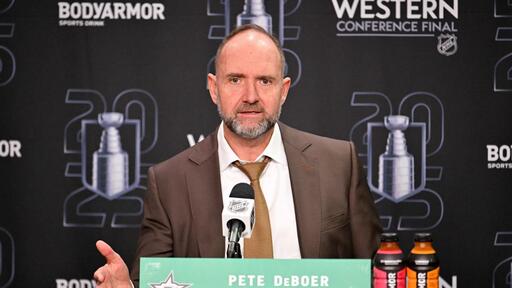‘One Little Push and It Was Back to Square One’ — Chris Kreider Reflects on Tumultuous Injury-Riddled Season With Rangers
For most of his 13-season career, Chris Kreider was the New York Rangers’ ironman — a relentless, explosive power forward who never took a shift off. He prided himself on his physicality, on going to the hard areas, on battling through contact. But in what may now be his final full season with the Blueshirts, Kreider found himself caught in a frustrating, demoralizing cycle of injuries that left both body and spirit battered.
Sitting down in late July, months removed from the Rangers’ second-round playoff exit and a mere few weeks after being traded to the Anaheim Ducks, Kreider finally opened up about what he called “the hardest season of my career — by far.”
“One little push, and it was back to square one,” he said, the words sitting heavy. “That’s how it felt for months. I’d come back, feel good, get into a rhythm… and then something would give out. Again.”
Kreider’s 2024–25 campaign was marred by a series of lower-body injuries that began in late November. It started as what the team called “day-to-day soreness” — something minor, nothing structural. But as the games passed and Kreider kept getting pulled from the lineup for precautionary reasons, it became clear that this wasn’t going to be a typical bump-and-bruise situation.
“It was one of those injuries where scans don’t tell the whole story,” he explained. “Soft tissue, stability — it’s stuff you feel, not stuff you see. And I kept pushing because that’s what I’ve always done. Tape it up, take the shot, get back out there. But this time, it didn’t work.”
The first significant absence came in December — a six-game stretch that saw the Rangers struggle without their veteran presence. Kreider returned in early January, playing with a noticeable limp in his stride, but still managing to contribute. He even scored in his first game back, sparking hope that he was ready to power through the second half of the season.
But by February, he was sidelined again. And this time, it was longer — nearly a month.
“That second setback was crushing,” he admitted. “Because I had done everything right. Rehabbed like crazy. Ate clean. Slept right. Mentally locked in. And then one awkward twist, and I’m back in a boot. You start asking yourself: is this going to be the rest of my career?”
For a player whose game relies so heavily on explosive first steps and net-front battles, physical limitations can be career-altering. Kreider was never just a finesse scorer — he made his name by going where few others dared, absorbing punishment to create space and deflections in front of the crease. The injuries stripped him of that foundation.
“It wasn’t just the pain,” he said. “It was the doubt. You start second-guessing everything — when to plant, when to pivot, whether that puck is worth chasing into the corner. That’s when I knew it was changing me.”
Despite the setbacks, Kreider still managed to appear in 51 games, registering 18 goals and 17 assists — respectable numbers by most standards, but well below his usual production. More importantly, he never fully looked like himself. Gone was the furious pace. The menacing presence in front of the net was dulled. The edge that made him such a matchup nightmare had softened.
“It wasn’t about numbers,” he insisted. “It was about not being the guy my teammates needed me to be. I take a lot of pride in being a leader — in setting a tone, in doing the hard stuff. When you’re not 100 percent, and you know it’s affecting the room, it kills you inside.”
Kreider tried to stay engaged in other ways. He worked closely with younger teammates like Alexis Lafrenière and Will Cuylle, offering advice on positioning, preparation, and mentality. He leaned heavily on mental performance coaching, trying to stay positive despite the physical limitations. But even as he attempted to maintain composure outwardly, he admits now that there were dark days.
“There were moments where I didn’t even want to go to the rink,” he said quietly. “And that’s never happened before. The rink was always my escape. But when your body betrays you and you can’t play the way you’ve always played, it gets to you. I’d watch from the press box and feel useless.”
The Rangers finished the regular season with a strong record, riding breakout years from Lafrenière and Filip Chytil, as well as continued excellence from Artemi Panarin and Igor Shesterkin. But heading into the playoffs, the team needed their heartbeat back — and Kreider, who rushed to return in April, was determined to be that for them.
“I probably shouldn’t have come back as early as I did,” he admitted. “But there was no way I was sitting out the playoffs. If I had to play 10 minutes a night on one leg, that’s what I was going to do.”
He played all six games in the Rangers’ second-round loss to Carolina, even registering a game-winning goal in Game 2. But those moments of magic were fleeting. The lingering injuries had taken their toll, and it was clear to anyone watching that this wasn’t the same Chris Kreider.
When the season ended, he knew his time in New York might be up. With a rising cap crunch and the front office looking to retool around younger talent, his name was once again floated in trade talks — but this time, they became reality.
“I could feel it coming,” he said. “You look around the room, you look at the math — you know where it’s headed. Doesn’t make it easier.”
He found out about the trade to Anaheim via a call from his agent, followed by one from the Rangers front office. Then came the flood of texts — from teammates, fans, former coaches, even a few rivals.
“The love I got… man, it was overwhelming,” he said. “I cried more in those two days than I have in the last 10 years combined. It made me realize how much New York meant to me. How much those people meant.”
Now, in Anaheim, Kreider is beginning a new chapter. The Ducks are younger, in the midst of a rebuild, and Kreider’s role will be different — less about scoring 30 goals, more about teaching others how to get there. But the passion hasn’t dimmed.
“I’m not done,” he said. “Far from it. I’ve got a lot left to give. I just need to be smart with my body, manage things better, listen when it’s telling me to slow down.”
Asked if he thinks he’ll ever be 100 percent again, Kreider paused. “Maybe not the 24-year-old version of me,” he said with a grin. “But I think I can still be the guy who makes an impact. Just in different ways.”
He’s already mentoring Ducks winger Frank Vatrano — a former teammate and longtime friend — and working closely with Anaheim’s strength staff on a more conservative, longevity-focused program. “No more rushing back,” he said. “No more hiding pain.”
Still, his heart remains in New York. In quiet moments, he replays memories — his first playoff goal in 2012, the Eastern Conference title in 2014, the roar of Madison Square Garden after a clutch goal. And yes, even the injuries. Because they taught him something deeper.
“Nothing’s guaranteed,” he said. “Not your body. Not your time with a team. All you can do is give everything while you’re there — and I did. That’s what gives me peace.”
Now, as he steps into the twilight of his career, Chris Kreider does so with wisdom earned not through records or accolades, but through resilience. Through pain. Through the acceptance that even ironmen break sometimes.
And maybe — just maybe — the comeback will be his most powerful chapter yet.



